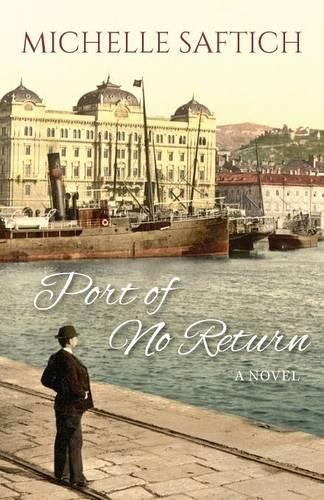Why a Booktrail?
1944 – 1950: What can you do when you have nowhere left to call home?

1944 – 1950: What can you do when you have nowhere left to call home?
Contessa and Ettore Saforo awake to a normal day in war-stricken, occupied Italy.
As Tito and his Yugoslav Army threaten their German-held town of Fiume, Ettore finds himself running for his life, knowing that neither side is forgiving of those who have assisted the enemy. His wife and children must also flee the meagre life their town can offer, searching for a better life as displaced persons.
Ettore and Contessa’s battle to find each other, and the struggle of their family and friends to rebuild their lives in the aftermath of a devastating war, provide a rich and varied account of Italian migration to Australia after World War II.
Croatia – Rijeka (formely Fiume in Italy)
Fiume was an independent free state which existed between 1920 and 1924. It was some 28 km 2 (11 sq miles) and comprised of the city of Fiume (now in Croatia and known as Rijeka) and rural areas to its north, with a corridor to its west connecting it to Italy.
Fiume was proclaimed a free port of the Holy Roman Empire in a decree issued by the Emperor Charles VI. It changed status several times over the years and changed hands several times too. The population and ethnicity of the city also changed many times.
The special status of the city, linked as it was between two different states meant that it grew up with a mix of cultural influences, languages and people from various backgrounds and allegiances.
After the First World War and the demise of Austria-Hungary, the question of the status of Fiume became a major international problem. IT continued like this for many years and changed hands during this time. With the surrender of Italy in the Second World War, the Rijeka issue resurfaced.With the Paris Peace Treaty of 1947, Rijeka and Istria officially became part of Yugoslavia.
Destination: Rijeka (formely Fiume) Author/guide: Michelle Saftich Departure Time: 1944 – 1950
Back to Results